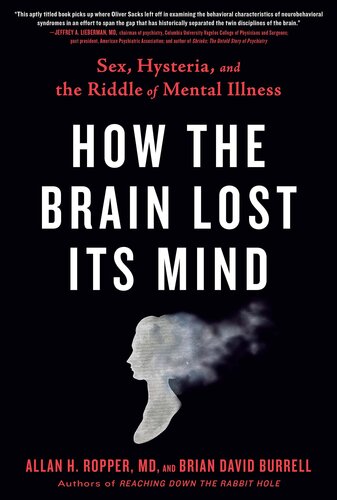
How the Brain Lost Its Mind
Sex, Hysteria, and the Riddle of Mental Illness
سکس، هیستری و ری دل بیماریهای ذهنی
کتاب های مرتبط
- اطلاعات
- نقد و بررسی
- دیدگاه کاربران
نقد و بررسی

August 1, 2019
When did the treatment of mental conditions split into the fields of psychiatry and psychology, and why did that split occur? According to coauthors Ropper (neurology, Harvard Medical Sch.; Principles of Neurology), and Burrell (mathematics, Univ. of Massachusetts Amherst; Postcards from the Brain Museum), the divide is tied to the difference between the brain and the mind. This book primarily uses the history of syphilis to explore how our understanding of mental illness has changed over time. Our knowledge of mental disorders advanced when neurosyphilis, a disease resulting in physical damage to the brain, was found to cause erratic behavior. Treating mental conditions in the same way we'd treat diseases impacting other parts of the body led to pharmacological cures. But not all people with psychological issues had syphilis. There had to be other causes, and as neurology slowly progressed, psychologists worked to understand and heal the mind. The book follows mental health pioneers such as early neurologist Jean-Martin Charcot, Sigmund Freud, and the questionable hypnotist Franz Mesmer. VERDICT A compelling read for those interested in mental illness and the history of medicine. Although accessible, the technical language may be difficult for some general readers.--Susanne Caro, North Dakota State Univ., Fargo
Copyright 2019 Library Journal, LLC Used with permission.

























دیدگاه کاربران